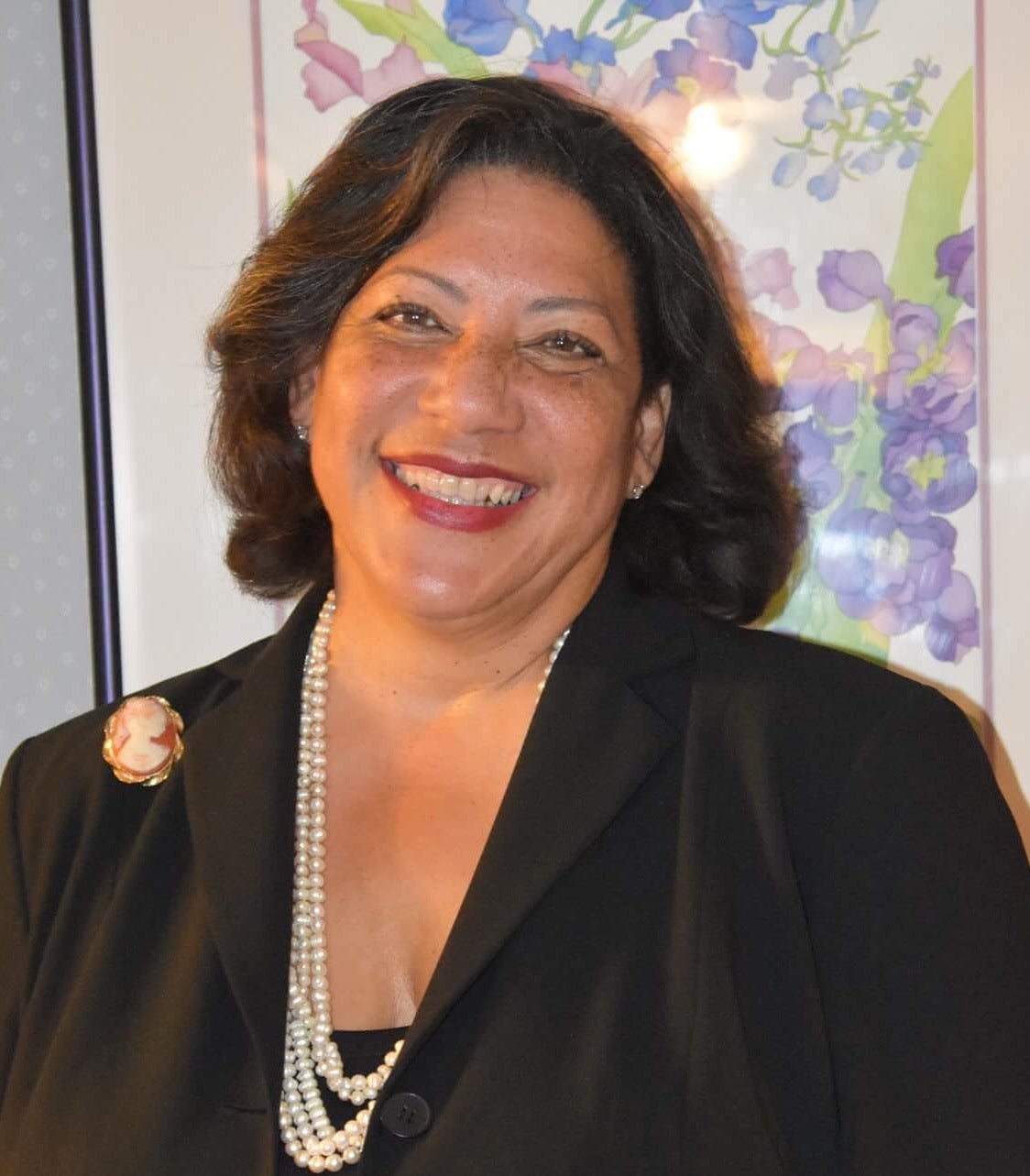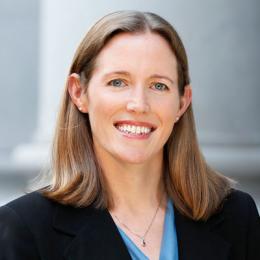"People hear the word ‘boards’ and they make many assumptions. Many of them are simply false,” says Aileen Casanave, deputy general counsel at Jiff, Inc. Jiff, Inc. helps companies lower healthcare costs and cultivate happier, healthier employees through its web and mobile-based health and financial wellbeing benefits platform for enterprise customers. Casanave is a bold woman with a presence that is larger than life. Her laugh is contagious, her voice is confident and clear, and her attitude is overwhelmingly positive. Any project she touches shines and is executed to perfection because she’s satisfied with nothing less than a job well done. This includes board service, which is a large part of her professional identity.

One common assumption, according to Casanave, is that joining an interesting, satisfying, high profile board is nearly impossible. “This complete fallacy needs to stop. It is simply not true,” Casanave declares empathically. “There are so many interesting and high profile nonprofits, government agencies, educational institutions, and other organizations that are looking for qualified, hard-working, and diligent board members. Lack of opportunities on boards should never be one’s concern.”
Lawyers also assume that they must always act in a legal capacity. Consequently, many attorneys have concerns about conflicts, malpractice insurance, and the perception of moonlighting or impropriety. “They assume it’s ‘once a lawyer, always a lawyer’ in every walk of life. Again… not true,” Casanave explains. “There are a number of ways to serve on boards in a non-legal capacity. For example, many lawyers are also shrewd business people, with well-developed industry insights, long-standing passions and hobbies, and expertise that is valuable and worth sharing. They can and should absolutely leverage these non-legal assets through board service. Giving notice to the board that you are not providing legal advice is key. I am on two boards where all the board members are attorneys and we still have general counsel to provide the ‘formal legal opinions’ through the assistance of outside counsel.”
Before joining a board, however, Casanave recommends that lawyers conduct due diligence about the organization and its many stakeholders. “Not all boards are created equal,” she says. They differ in size, amount of work, what they expect, how active they are, how organized they are, and other factors. Prospective board members must understand how much time they are willing to share, ascertain that their values match those of the organization, and find out whether board participation includes work on subcommittees or participation in company events as a board representative, for example. “It is important that the board opportunity is as much of a match for you as it is for the organization,” Casanave explains. “Most people are only capable of amazing work when they are happy, fulfilled, and content and when their contribution to the board is a win-win for both the individual and the board.”
Casanave also recommends regularly reassessing what boards might be the best match and whether it makes sense to stay on a board. “My board service mix reflects where I am in life,” says Casanave. For example, when her children were young, Casanave served on the board of Girl Scouts of America’s Santa Clara Chapter. “At the time I was a troop leader and my daughter was a scout. As a board member and troop leader, I was part of the organization that my daughter loved and I enjoyed,” she explains. As her children grew and she had more time to herself, she joined boards of other professional and recreational organizations. “I now have more time to follow my interests,” she says. “So, I’ve become more active in legal and professional boards now that my children have become more independent.”
Currently, Casanave serves on several boards that are perfect matches for her talents and values:
University of San Francisco School of Law, Board of Governors Member
Casanave joined this board to stay in touch with her law school alma mater and influence its future. It is the most active non-fundraising board on which Casanave serves. She chairs a sub-committee, provides opinions and advice to the dean and staff that attend the board meetings, and organizes events with other board members, students, and alumni. “I love serving on this board because it is fun and I feel the impact of my work right away. I love giving back to the institution that gave me my legal career,” she says. “This board is very active and there is no way I could do another one that is as active as this one, especially given that I am the only in-house attorney at Jiff.” Casanave explains that although satisfying, this board service “the only reason it is possible is because the board has substantial and proactive administrative support and each board member is equally as active as I am.”
Santa Clara University School of Law’s Center for Social Justice and Public Service, Board Member
Casanave joined the Public Interest and Social Justice (PI&SJ) Law Board when she was lecturing at Santa Clara University Law School. Her sole aim is fundraising for the law school’s public interest fellowship and getting the word out to the students that grants are available. “The work we do on this board allows law students to take summer and fall positions that serve the traditionally underserved population, through organizations like Legal Aid, and helps the students pursue public interest opportunities after they graduate by getting that work history as law students,” she says.
California Association of Black Lawyers (“CABL”), Board Member and General Counsel of Northern California; Black Technology Attorneys Group, Board Member and Secretary
CABL’s board, like other affiliate-based boards, varies in the level of involvement by board member. Casanave has limited her current involvement to the monthly board meetings and serving as one of two general counsel for the board, where the legal advice is supported by outside counsel. Further involvement fluctuates from extremely busy (hosting the CABL Conference and Gala for more that 200 attorneys throughout all of California) to attending a relatively quiet monthly meeting where initiatives are discussed and voted on by a quorum of the board. “I simply enjoy being with people who share common experiences and support one another as members of the board and as life-long friends,” she says.
African American Community Service Agency, Board Member and General Counsel
Casanave most recently was appointed to the board of the AACSA and she admits she is doing this work as a tribute to her parents who were founding members of the AACSA. Casanave spent many evenings and weekends as a child volunteering and assisting her late parents and their friends in sponsoring health education programs for economically disadvantaged members of the community. As a board member, Casanave has supported AACSA Executive Director, Milan Balinton with the re-landscaping of the center, funding a community vegetable and rose garden in honor of her mother, Joan Casanave. Next month Casanave has solicited the support of the Santa Clara County Black Lawyers Association, where she is the immediate past president, to host a Know Your Rights community educational seminar with representatives from offices such as the District Attorney, Public Defender, and San Jose Police. “This is about returning to where it all began. Giving back to my heritage. Honoring my parents by continuing their work. Putting my time and energy where the impact is the greatest and yields the richest rewards for the community members we serve,” says Casanave.
Although these boards are diverse, Casanave says “they all have one thing in common — they are all organized boards, with clear priorities and defined expectations. I feel satisfied because my time is well used and impacts the causes I care about.” Casanave admits that, despite her stringent criteria and mindful assessment, she can get a bit overextended with her board work and subcommittee leadership. “I often find myself saying ‘I have to drop one before I can take on another!’”
Ultimately, however, Casanave believes her current board service is worth the effort. It is a “perfect mix” that allows her to pursue her passions, grow as an attorney, and impact her community. “These board positions reflect where I am in life,” she says. “How can I ask for more?!” Casanave hopes that with her advice, other lawyers can find themselves just as happy, fulfilled, and content with their own board service — even if it just means starting with one board.





